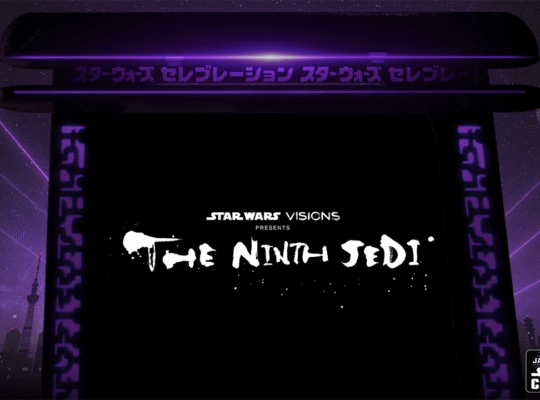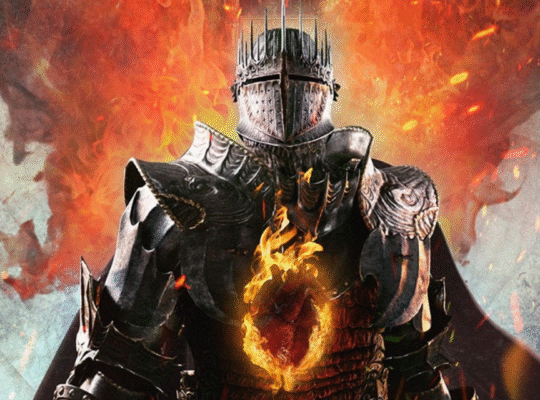It’s a surefire premise perhaps best-suited to a Tales from the Crypt holiday special: A sweet-natured sixth-grader named Liam (Robert Timothy Smith) writes a letter to Santa, only he accidentally addresses it to “Satan” – and thus dutifully materializes a genuine demon, ready to get Liam whatever he wants for the low, low cost of his soul. Maybe this idea could’ve worked as a Tenacious D music video, especially with master showman Jack Black playing the Devil himself. But Black also has a lucrative side hustle in kid-friendly entertainment (or is it his main deal, these days?), so Dear Santa is, in fact, a family movie – albeit one salty enough to be made by the Farrelly brothers. Their trademark mix of the juvenile and the good-hearted should’ve made them well-suited to crafting a kiddie crowd pleaser, but while their trademark crude-and-sweet mixture remains, Dear Santa falls well short of their own comedy high-watermarks, and can’t even muster the kiddie crowd-pleaser that might have been.
At least it’s nice to see that the Farrellys (Bobby – the one who didn’t make Green Book; decide for yourself whether that makes him less respectable, or more – directs, while Peter co-writes with sitcom veteran Ricky Blitt) maintain their affectionate interest in outcasts and the differently abled. Liam, whose dyslexia causes his Santa-letter misprint, is having trouble at home as his parents Bill (Hayes MacArthur) and Molly (Brianne Howey) bicker incessantly. The Farrellys are not particularly adept at depicting the nuances of a fractured family, however; some attempts at familial pathos eventually require far more suspension of disbelief than the supernatural stuff. When Molly reassures Bill that he’s a great dad, for example, both she and the screenplay seem downright delusional; he never seems anything short of dismissive, condescending, and borderline cruel to his young son.
Liam’s school life is only marginally better, as he and his one friend Gibby (Jaden Carson Baker) linger on the outskirts of the popular kids. He eventually decides to take Satan’s offer of three wishes (the genies stole the idea from him, he claims), at least partially: If he only uses two of the three wishes, he reasons, the Devil can never claim his soul. This less-than-inspired idea for his first wish involves him taking his crush to a Post Malone concert, and getting on stage with the spell-struck singer. Even for a movie steeped in the terrible powers of Hell, there’s a lot of Post Malone in Dear Santa – and he definitely hasn’t made a deal with the Devil to improve his acting chops.
For a while, Dear Santa is a typically later-period mixed result from the Farrellys. It’s endearing, but burdened with an overcomplicated story that takes a while to deploy its main hook, and they show more comfort with visual gags than verbal ones. Black, for his part, is able to put enough enthusiastically individual spin on his lines (“Sorry, can’t discuss that, it’s under liti-gaysh”) to wring laughs from them, just as Jim Carrey and Ben Stiller have boosted other Farrelly movies. But Dear Santa truly falters when it chooses to largely neglect its easiest layup: exploring how a middle-schooler might be corrupted by associating with a demon, no matter how fun-loving and Jack Black-y that figure is. Liam’s temptation is part of the story, but it’s almost an afterthought, like somehow it would seem beyond the pale for a kid who lies about his friend having cancer to fully embrace Satan.
Even more misguided are a couple of late-breaking plot turns that nullify the initial premise on multiple levels, rather than providing additional escalation. (Even a cameo from a past Farrelly and Black collaborator doesn’t get more than a few scant chuckles.) In a seeming attempt to manufacture happy tears, Dear Santa comes up with a resolution that’s such a shockingly tone-deaf misappropriation of holiday cheer that it almost plays like satire, as if the filmmakers are mischievously upping the ante on kids stories’ that depend on the undoing of divorce and repression of sadness. For all of Dear Santa’s talk of demons and hell, its ending feels more subtly evil than anything else in the movie.












